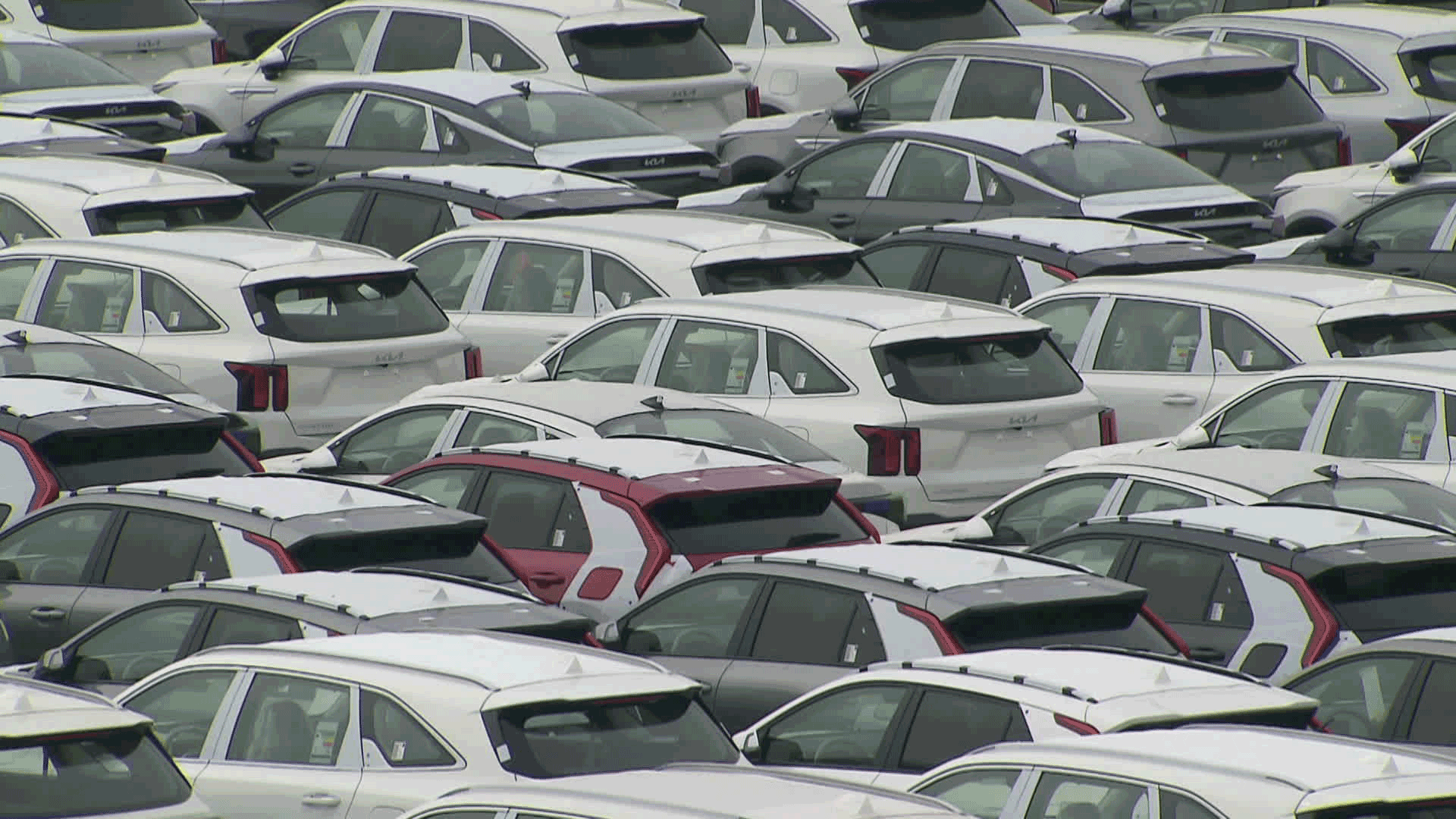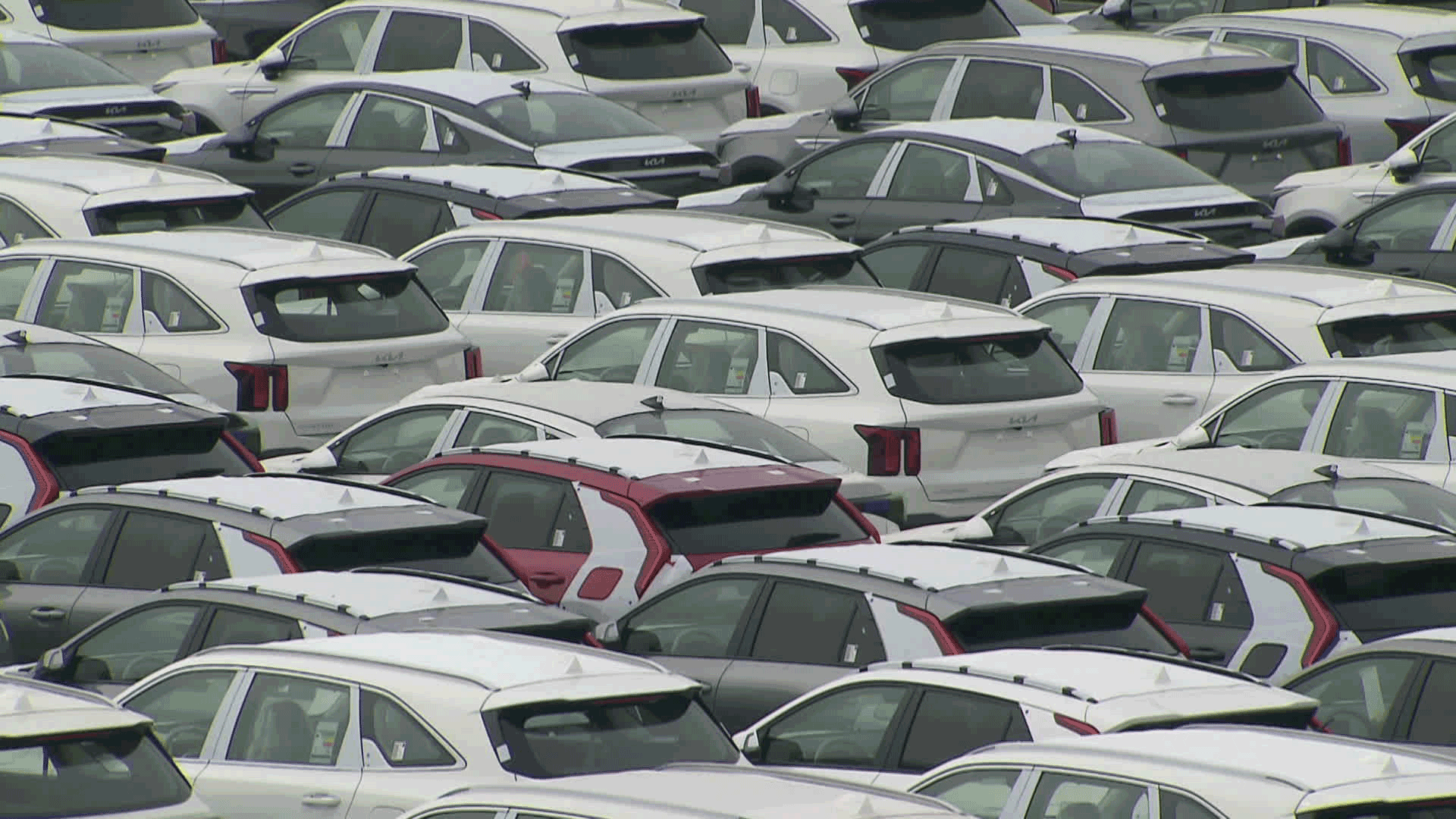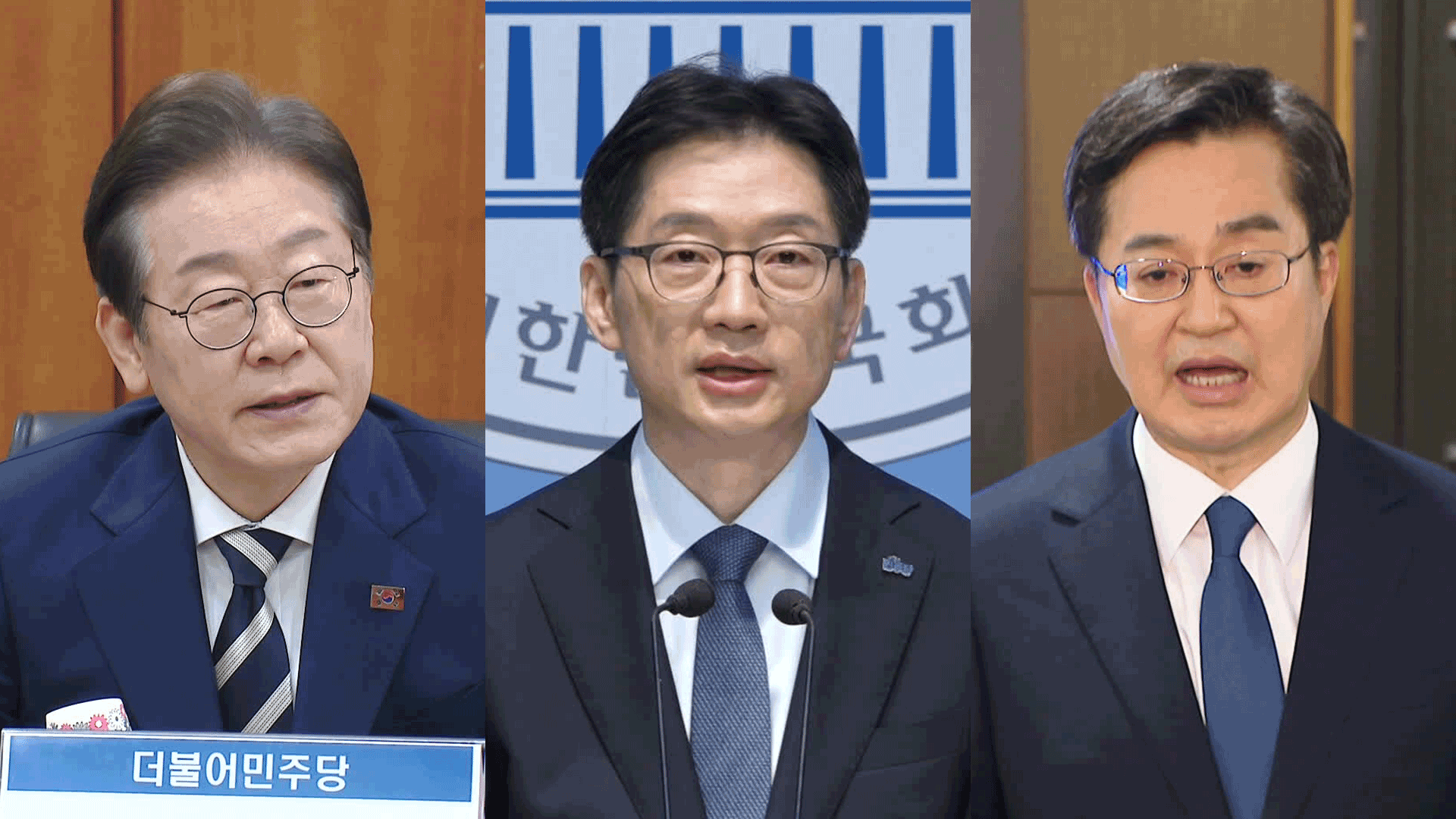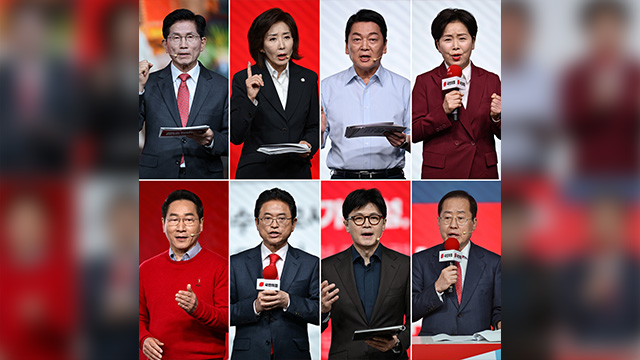[Anchor]
The impact of U.S. tariff policies on our exports is being confirmed by statistics.
Since the beginning of this month, exports to the U.S. have decreased by more than 10%, leading to a contraction in overall export performance.
Among our top 10 export items, all except semiconductors have seen a decline in exports.
Reporter Park Kyung-jun has the story.
[Report]
Automobiles account for nearly half of our exports to the U.S.
Since the 3rd of this month, a high tariff of 25% has been imposed, raising concerns about the impact on exports.
The repercussions have been clearly reflected in this month's export results.
As of the 20th of this month, exports of passenger cars to the U.S. have dropped by more than 20% compared to the same period last year.
As a result, exports to the U.S. have decreased by 14.3%.
Overall exports have also declined.
Among the top 10 export items, only semiconductors have increased, while exports of the other 9 items have all decreased.
[Jang Sang-sik/Director of Trade and Economic Research Institute, Korea International Trade Association: "Since Trump had mentioned imposing tariffs starting in April, there was a tendency among exporters to either bring forward shipments to March or postpone to May or June."]
Even though the U.S. has postponed the reciprocal 25% tariffs on Korea, we are already facing a negative export performance.
The first trade consultation between South Korea and the U.S. after the imposition of tariffs will be held at 9 PM our time on the 24th.
It will take the form of a '2+2 trade consultation' where the finance and trade heads of both countries will meet.
[Han Duck-soo/Acting President: "We will seek mutually beneficial agreements between the two countries, focusing on trade balance, shipbuilding, and LNG as the three main areas."]
The top priority is to lower or exempt tariffs on specific items such as automobiles and semiconductors, as well as reciprocal tariffs.
However, since item-specific tariffs are applied globally, there are forecasts that it will be difficult to lower or exclude them through country-specific negotiations.
This is KBS News, Park Kyung-jun.
The impact of U.S. tariff policies on our exports is being confirmed by statistics.
Since the beginning of this month, exports to the U.S. have decreased by more than 10%, leading to a contraction in overall export performance.
Among our top 10 export items, all except semiconductors have seen a decline in exports.
Reporter Park Kyung-jun has the story.
[Report]
Automobiles account for nearly half of our exports to the U.S.
Since the 3rd of this month, a high tariff of 25% has been imposed, raising concerns about the impact on exports.
The repercussions have been clearly reflected in this month's export results.
As of the 20th of this month, exports of passenger cars to the U.S. have dropped by more than 20% compared to the same period last year.
As a result, exports to the U.S. have decreased by 14.3%.
Overall exports have also declined.
Among the top 10 export items, only semiconductors have increased, while exports of the other 9 items have all decreased.
[Jang Sang-sik/Director of Trade and Economic Research Institute, Korea International Trade Association: "Since Trump had mentioned imposing tariffs starting in April, there was a tendency among exporters to either bring forward shipments to March or postpone to May or June."]
Even though the U.S. has postponed the reciprocal 25% tariffs on Korea, we are already facing a negative export performance.
The first trade consultation between South Korea and the U.S. after the imposition of tariffs will be held at 9 PM our time on the 24th.
It will take the form of a '2+2 trade consultation' where the finance and trade heads of both countries will meet.
[Han Duck-soo/Acting President: "We will seek mutually beneficial agreements between the two countries, focusing on trade balance, shipbuilding, and LNG as the three main areas."]
The top priority is to lower or exempt tariffs on specific items such as automobiles and semiconductors, as well as reciprocal tariffs.
However, since item-specific tariffs are applied globally, there are forecasts that it will be difficult to lower or exclude them through country-specific negotiations.
This is KBS News, Park Kyung-jun.
■ 제보하기
▷ 카카오톡 : 'KBS제보' 검색, 채널 추가
▷ 전화 : 02-781-1234, 4444
▷ 이메일 : kbs1234@kbs.co.kr
▷ 유튜브, 네이버, 카카오에서도 KBS뉴스를 구독해주세요!
- Exports to U.S. down 14%
-
- 입력 2025-04-21 23:50:40

[Anchor]
The impact of U.S. tariff policies on our exports is being confirmed by statistics.
Since the beginning of this month, exports to the U.S. have decreased by more than 10%, leading to a contraction in overall export performance.
Among our top 10 export items, all except semiconductors have seen a decline in exports.
Reporter Park Kyung-jun has the story.
[Report]
Automobiles account for nearly half of our exports to the U.S.
Since the 3rd of this month, a high tariff of 25% has been imposed, raising concerns about the impact on exports.
The repercussions have been clearly reflected in this month's export results.
As of the 20th of this month, exports of passenger cars to the U.S. have dropped by more than 20% compared to the same period last year.
As a result, exports to the U.S. have decreased by 14.3%.
Overall exports have also declined.
Among the top 10 export items, only semiconductors have increased, while exports of the other 9 items have all decreased.
[Jang Sang-sik/Director of Trade and Economic Research Institute, Korea International Trade Association: "Since Trump had mentioned imposing tariffs starting in April, there was a tendency among exporters to either bring forward shipments to March or postpone to May or June."]
Even though the U.S. has postponed the reciprocal 25% tariffs on Korea, we are already facing a negative export performance.
The first trade consultation between South Korea and the U.S. after the imposition of tariffs will be held at 9 PM our time on the 24th.
It will take the form of a '2+2 trade consultation' where the finance and trade heads of both countries will meet.
[Han Duck-soo/Acting President: "We will seek mutually beneficial agreements between the two countries, focusing on trade balance, shipbuilding, and LNG as the three main areas."]
The top priority is to lower or exempt tariffs on specific items such as automobiles and semiconductors, as well as reciprocal tariffs.
However, since item-specific tariffs are applied globally, there are forecasts that it will be difficult to lower or exclude them through country-specific negotiations.
This is KBS News, Park Kyung-jun.
The impact of U.S. tariff policies on our exports is being confirmed by statistics.
Since the beginning of this month, exports to the U.S. have decreased by more than 10%, leading to a contraction in overall export performance.
Among our top 10 export items, all except semiconductors have seen a decline in exports.
Reporter Park Kyung-jun has the story.
[Report]
Automobiles account for nearly half of our exports to the U.S.
Since the 3rd of this month, a high tariff of 25% has been imposed, raising concerns about the impact on exports.
The repercussions have been clearly reflected in this month's export results.
As of the 20th of this month, exports of passenger cars to the U.S. have dropped by more than 20% compared to the same period last year.
As a result, exports to the U.S. have decreased by 14.3%.
Overall exports have also declined.
Among the top 10 export items, only semiconductors have increased, while exports of the other 9 items have all decreased.
[Jang Sang-sik/Director of Trade and Economic Research Institute, Korea International Trade Association: "Since Trump had mentioned imposing tariffs starting in April, there was a tendency among exporters to either bring forward shipments to March or postpone to May or June."]
Even though the U.S. has postponed the reciprocal 25% tariffs on Korea, we are already facing a negative export performance.
The first trade consultation between South Korea and the U.S. after the imposition of tariffs will be held at 9 PM our time on the 24th.
It will take the form of a '2+2 trade consultation' where the finance and trade heads of both countries will meet.
[Han Duck-soo/Acting President: "We will seek mutually beneficial agreements between the two countries, focusing on trade balance, shipbuilding, and LNG as the three main areas."]
The top priority is to lower or exempt tariffs on specific items such as automobiles and semiconductors, as well as reciprocal tariffs.
However, since item-specific tariffs are applied globally, there are forecasts that it will be difficult to lower or exclude them through country-specific negotiations.
This is KBS News, Park Kyung-jun.
-
-

박경준 기자 kjpark@kbs.co.kr
박경준 기자의 기사 모음
-
이 기사가 좋으셨다면
-
좋아요
0
-
응원해요
0
-
후속 원해요
0















이 기사에 대한 의견을 남겨주세요.